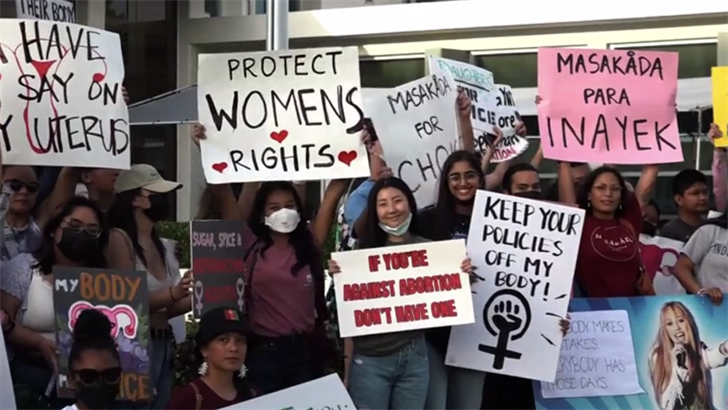Bill calls for voter referendum to decide abortion issue on Guam
Where do the people of Guam stand on the very divisive issue of abortion? That's what a bill by Sen. Tom Fisher seeks to answer, as it calls for a simple up or down vote in a voter referendum. The heading of the legislation spells out clearly its intent:

Where do the people of Guam stand on the very divisive issue of abortion?
That's what a bill by Sen. Tom Fisher seeks to answer, as it calls for a simple up or down vote in a voter referendum.
The heading of the legislation spells out clearly its intent: to provide Guam voters the power to decide on reproductive rights...a highly controversial issue that's divided the country for the last fifty years since the Supreme Court legalized nationwide abortion in the Roe v Wade decision of 1973.
The high court of course has since reversed that landmark decision, last June ruling that the abortion rights question rests with each individual state and territory.
A local law was passed in 1990 restricting abortion, but opponents won a permanent injunction so it could not be enforced.
But with the Supreme Court reversal of Roe v. Wade, Attorney General Douglas Moylan filed a successful motion to lift the injunction, and now that case is currently under appeal.
That brings us to Sen. Tom Fisher's bill, which calls for among other things, a voter referendum to decide the issue.
The familiar arguments pro and con were delivered once again during the public hearing on the measure.

"The language on the bill under legislature findings and intent state that abortion services are essential health care and access to those services central to people's ability to participate equally in the economic and social life of the territory," Sharon O'Mallan testified. "That is an insult to all of the women who have chosen to have children and continue to work and take care of both their jobs, their children and households. You diminish the strength intelligence and hard work of working mothers and stay-at-home mothers."

"Abortion is health care, and access to this health care actually saves lives, and not just live of the pregnant person, but we have to consider the challenges that an unwanted child experiences throughout their lifetime," Monaeka Flores said. "The people of Guam are entitled to protections of our fundamental rights without any further delay and while we know the majority of voters in Guam would support these rights in a referendum we would not wait for a referendum to protect our rights and make sure our rights are secured."
"Unlike other medical procedures, abortion implicates a fetal life in addition to the patient's health. Abortion is a unique act because it terminates life or potential life," O'Mallan said. "Abortion is inherently different from other medical procedures because no other procedures involve the purposeful termination of a potential life. End quote. That's from the 9th circuit judges."

"The power to decide on reproductive rights is an issue about the fundamental human right to bodily autonomy and equitable health care," Tatiana Reyes said."Putting these rights in the hands of voters is an irresponsible act. Access to these human rights should not be dependent on the votes of the majority, votes that realistically susceptible to be guided by a limited understanding of an extremely nuanced issue and personal values that should only dictate the life choices of the individual that holds them. These are rights that are entitled to all people and rights that our government should protect."
The Fisher bill also lifts any requirements or restrictions that might impede a patient's right to an abortion.
It would also require the attorney general to bring a civil suit against any government official that tries to limit a patient's right to an abortion.
The committee actually took concurrent testimony on a similar bill by Sen. Will Parkinson that would legalize abortion outright.
